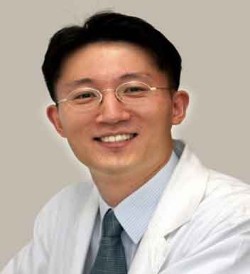Allogeneic Hair Transplant Success
One of the most common questions that people suffering from hair loss ask is why one cannot perform a hair transplant from one person to another? If this were possible, it would essentially be a hair loss cure! There would be no shortage of people with stellar hairlines that would be willing to donate a fraction or their hair to balding men and women for a decent price.
Unfortunately, the biggest issue with person-to-person hair transplants is rejection of foreign material. The only way to overcome this problem would be via the recipient taking immunosuppressants for life, which is potentially very dangerous.
Allogeneic Hair Transplant Success — No Immunosuppressants
A few days ago, it was announced that researchers from Seoul National University Hospital (SNUH) had successfully conducted an allogeneic hair transplant without the use of immunosuppressants. The research team was led by Professor Kwon Oh-sang.
 While this particular success involved 24 (!) mice-to-mice hair transplants rather than person-to-person hair transplants, it is still absolutely groundbreaking. Moreover, the mice immune systems were “humanized” via hematopoietic stem cell transplantation.
While this particular success involved 24 (!) mice-to-mice hair transplants rather than person-to-person hair transplants, it is still absolutely groundbreaking. Moreover, the mice immune systems were “humanized” via hematopoietic stem cell transplantation.
Nevertheless, this story was not covered by any newspapers or online publications in the western world! No idea why.
Normal hair transplants as we know them are autologous, where a person has his or her own hair grafts move them from the donor site to the recipient site. Allogeneic hair transplants are a different animal.
In this latest South Korean research, the scientists overcame immune system rejection of donor hair by eliminating dendritic cells. The team used ultraviolet B radiation to remove all the donor dendritic cells that were present in the donor hair follicles.
Interestingly, the scientists point out that hair follicles are less likely to be rejected by the immune system than other organs such as the heart, kidney and so on. In this regard, hair follicles are a bit like the cornea.
According the Dr. Oh-sang, such an allogeneic hair transplant procedure will be challenging to apply in practice when it comes to humans. However, this discovery does create new potential applications that were not possible before.
I wonder if he plans to start experimenting with part-autologous and part-allogeneic hair transplant procedures in humans in the near future?
The post Allogeneic Hair Transplant Success appeared first on Hair Loss Cure 2020.



Nice blog, I found useful information on topics. I actually benefit from the blog, thanks for sharing
ReplyDeleteHair Transplant in Chandigarh
FUE hair transplants maintain a higher success rate, compared to other techniques. One of the most effective and promising options for Las Vegas patients experiencing hair loss.
ReplyDelete